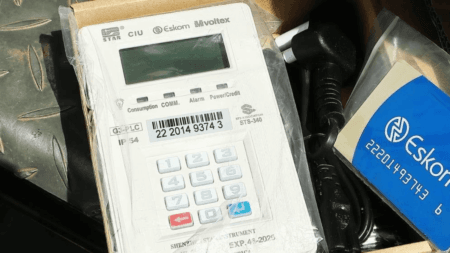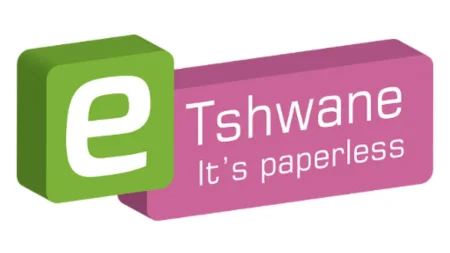With the increasing financial pressures faced by many South Africans, especially in the wake of rising living costs and economic uncertainty, more individuals are turning to personal loans to make ends meet. Unfortunately, this has created fertile ground for fraudsters who exploit desperation and lack of financial literacy to run sophisticated loan scams. Falling victim to such scams can have devastating consequences, including identity theft, financial loss, and prolonged debt cycles.
This article outlines key red flags to watch for when applying for loans and offers practical steps to verify the legitimacy of lenders. By staying informed and vigilant, borrowers can protect themselves from becoming another statistic in the growing trend of financial scams.
1. Common Red Flags of Loan Scams
1.1 Upfront Fees
A hallmark of fraudulent lenders is the demand for upfront payments disguised as “processing,” “insurance,” or “guarantee” fees. Legitimate financial institutions typically deduct any applicable fees from the approved loan amount or include them in the repayment structure. If you’re asked to pay money before receiving your loan, consider it a major red flag.
In South Africa, according to the National Credit Act, lenders are required to disclose all fees upfront and only charge them once the loan agreement is signed and active.
1.2 Unsolicited Loan Offers
Be cautious of loans advertised via SMS, social media platforms, or random phone calls—especially those you did not request. Authentic financial service providers rarely cold-call consumers to offer loans. Fraudsters often use these unsolicited messages to cast a wide net and lure unsuspecting victims.
1.3 Pressure to Act Quickly
Scammers thrive on urgency. They may claim that a loan offer is valid “for today only” or that your credit approval will expire in hours. This tactic is designed to rush you into a decision before verifying the lender’s credentials or understanding the loan terms.
Take your time to research, ask questions, and seek independent advice if necessary. A trustworthy lender will never pressure you into signing.
1.4 Guaranteed Approval Claims
No credible lender can promise approval without first assessing your financial standing, including your credit history, income, and employment status. Statements like “100% approval regardless of credit” are unrealistic and typically a lure used by scam operations. The National Credit Regulator (NCR) mandates that all credit providers perform affordability assessments before granting credit.
1.5 Poor Communication and Unprofessionalism
Loan scam communications are often riddled with spelling and grammatical errors. Look out for generic email domains such as @gmail.com or @yahoo.com instead of official company domains. Fake lenders may also be reluctant to provide physical office addresses or offer vague contact details that are difficult to verify.
2. Additional Warning Signs
2.1 No Credit Check or Document Verification
Legitimate lenders in South Africa are legally required to assess your affordability and verify employment or income details before approving a loan. Be suspicious of lenders who promise instant payouts without asking for supporting documents.
2.2 Suspicious Loan Terms
If a loan offer comes with exceptionally high interest rates, unclear repayment schedules, or excessive fees buried in the fine print, be wary. Scam lenders often present terms that are too good to be true—or too complicated to understand—banking on the borrower’s lack of scrutiny.
2.3 Requests for Sensitive Personal Information
A common tactic used by scammers is to request highly sensitive personal or banking information over unsecured platforms. Never share your South African ID number, bank login credentials, or passwords via WhatsApp, email, or phone. These details can be used for identity theft or to gain unauthorised access to your accounts.
3. Protective Measures to Take
3.1 Verify the Lender
Before engaging with any loan provider:
Check for registration with the National Credit Regulator (NCR) on www.ncr.org.za.
Research reviews or complaints through platforms like HelloPeter, Trustpilot, or social media.
Ensure the lender has a verifiable physical office, working contact number, and a legitimate website.
Legitimate credit providers in South Africa are issued with an NCRCP number that must be prominently displayed on all marketing materials.
3.2 Read the Loan Agreement Carefully
Go through the loan documents line by line. Ensure that all fees, interest rates, repayment terms, and default penalties are clearly explained. If any sections are ambiguous or missing, ask for clarification or have a legal advisor review them.
Under the Consumer Protection Act, South African consumers have the right to transparent and understandable financial agreements.
3.3 Use Trusted Financial Institutions
Whenever possible, apply for loans from reputable banks, credit unions, or licensed microlenders. These institutions are regulated and offer consumer recourse options in case of disputes. Avoid dealing with unregistered “loan sharks” or informal lenders.
3.4 Report Suspicious Activity
If you suspect that you’ve been targeted by or fallen victim to a loan scam, report it immediately to:
The South African Police Service (SAPS)
The National Credit Regulator (NCR): complaints@ncr.org.za
The Financial Sector Conduct Authority (FSCA): www.fsca.co.za
Consumer Goods and Services Ombud (CGSO): www.cgso.org.za
Acting quickly can help prevent further financial loss and protect others from falling into the same trap.
Check also: EasyPay Loans: How Borrowing Up to R2 000 Works
Loan scams continue to evolve, becoming more sophisticated in how they approach and exploit vulnerable South Africans. Whether you’re urgently in need of cash or simply exploring financing options, it’s crucial to apply a cautious, informed approach.
By identifying red flags early and verifying lenders thoroughly, you can shield yourself from exploitation. Always remember: if an offer seems too good to be true, it probably is.










